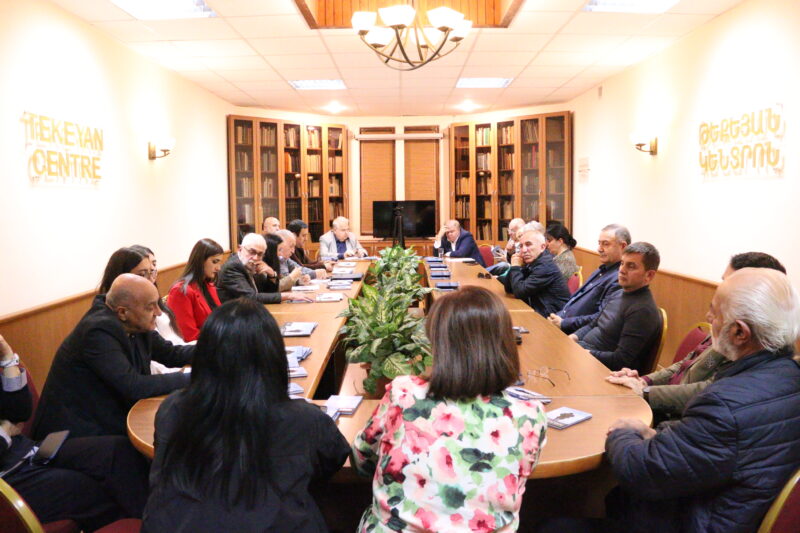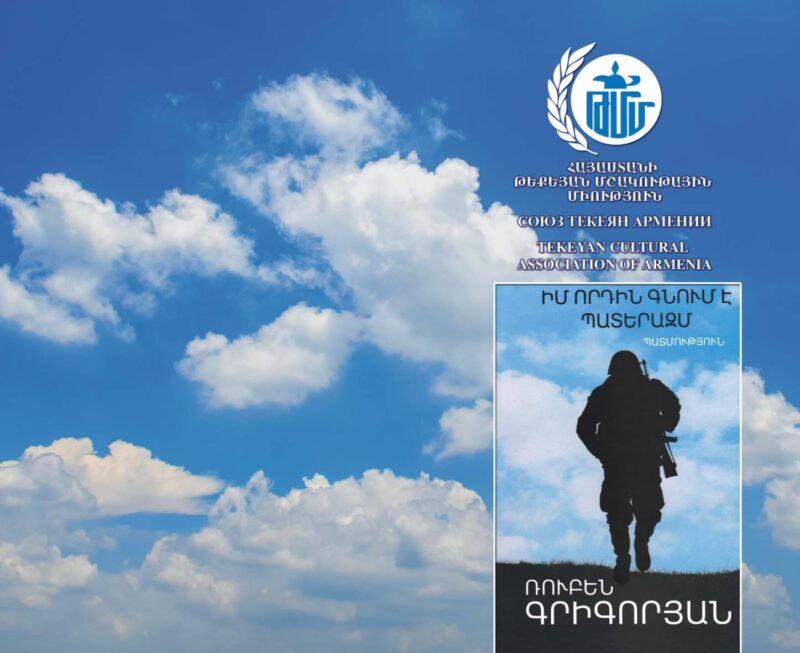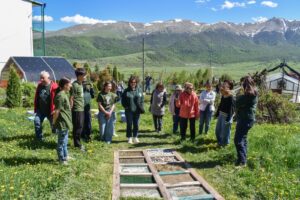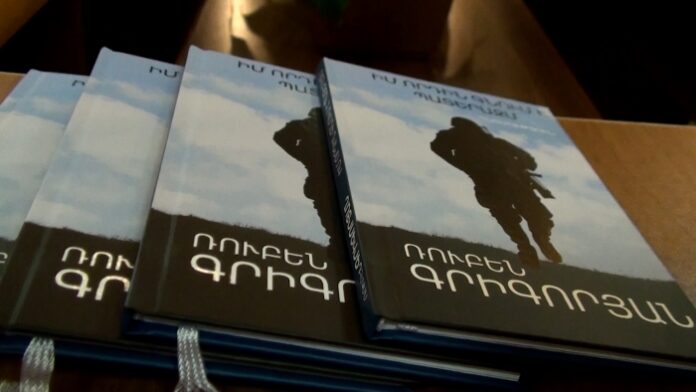YEREVAN — The presentation of the book My Son Goes to War, by Ruben Grigoryan, a well-known businessman, philanthropist, public figure and member of the Tekeyan Cultural Association of Armenia (TCA-Armenia), took place on October 26 at the Tekeyan Center here.

The book was written in 2021 in Russian, then translated into English and Armenian. The audience watched a video series about the various wars in Artsakh, as well as a clip from an animated film based on the book.
Ruben Mirzakhanyan, the president of TCA-Armenia, spoke about a number of Grigoryan’s philanthropic projects and emphasized that he always supported the processes that are important for the country and the people. Mirzakhanyan observed that his articles about social and political topics, just like the book My Son Is Going to War, are written from the heart. Mirzakhanyan declared: “He writes in short but powerful sentences, in which there is boundless love for the homeland, the nation, and the people.”
The book is a concise story not only of filial and paternal love, but also of all-consuming war, death and the right to life gained by means of the latter. For the hero, war seems to be a scale, on one side of which was the homeland, and on the other, the life of his son, whom he was sending off to war.

Among the descriptions of the events, he exhorts the readers to love the homeland, whose “land is worth as much as the lives of the people living on it.”








